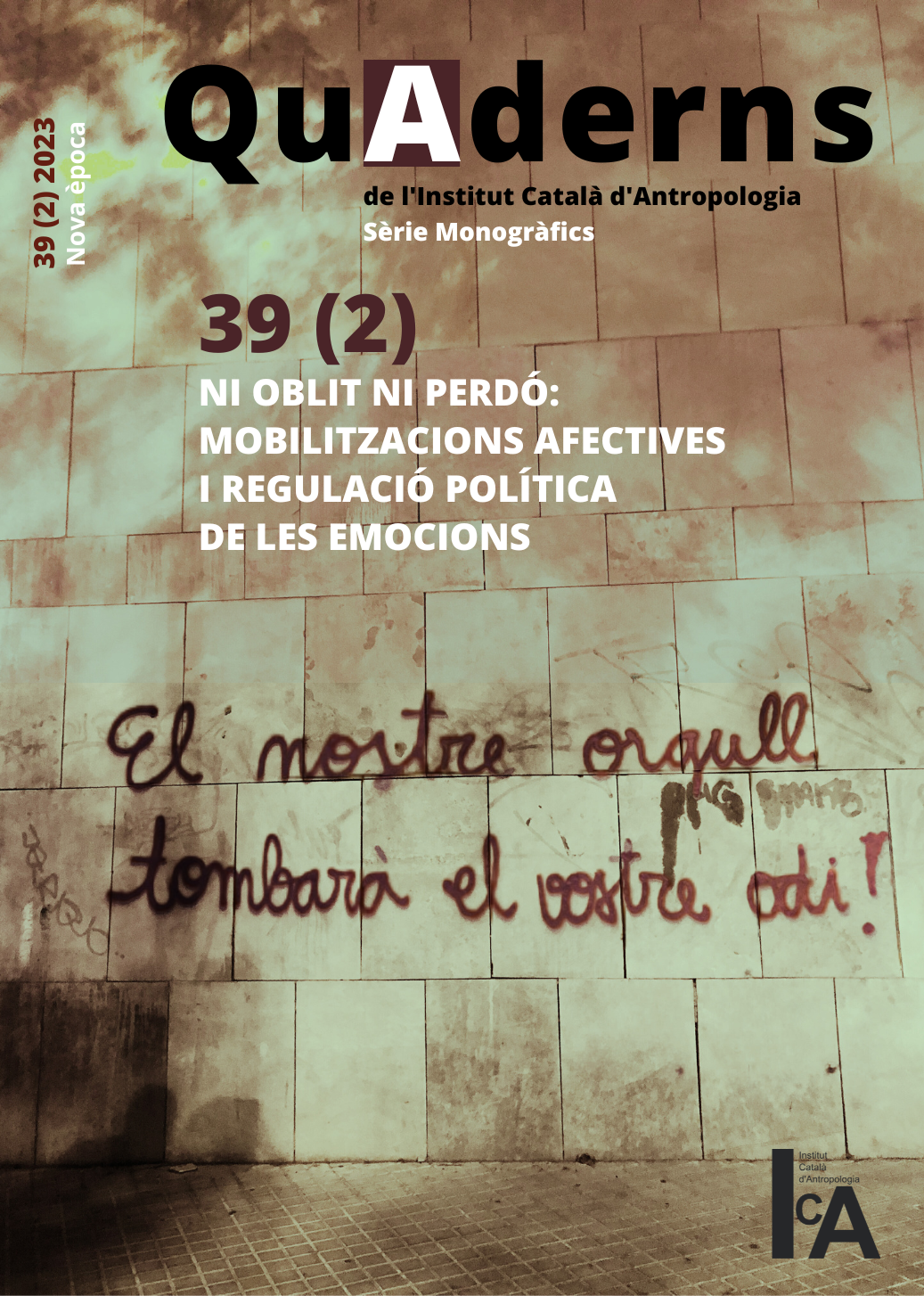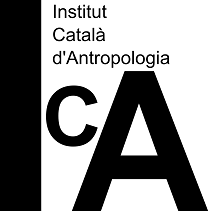Repressió, por i mobilitzacions afectives a l'independentisme català: apunts etnogràfics sobre concepcions i estratègies al voltant de la por
DOI:
https://doi.org/10.56247/qua.498Paraules clau:
independentisme, emoció, repressió, acció política col·lectivaResum
El període històric conegut com el Procés independentista Catalunya s'ha caracteritzat per una activació política extraordinària que ha portat a la generació de mobilitzacions massives. En aquest procés, l’experimentació individual i col·lectiva d’emocions i afectes ha tingut un pes fonamental que no només ha condicionat les experiències polítiques, sinó que n’ha creat de noves. Et treball etnogràfic ha permès constatar que l’emoció de la por ha estat abastament compartida pels partidaris de la independència de Catalunya, tant en un pla latent i inconcret, com a amenaça constant, i també en episodis específics i localitzats temporal i espacialment. Lluny de servir a la desactivació, la por ha despertat estratègies individuals i col·lectives, creant noves xarxes afectives, que han permès vincular l’esfera política i mobilitzadora amb l’esfera emocional.
Descàrregues
Global Statistics ℹ️
|
311
Views
|
93
Downloads
|
|
404
Total
|
|
Referències
Ahmed, S. (2004). The Cultural Politics of Emotion. Edinburgh University Press
Billing, M. (1995). Banal Nationalism. Sage.
Calhoun, Craig (1998). Nationalism. University of Minnesota Press.
Canals, R. (2019). Editorial. El present polític de Catalunya. Una mirada des de l'antropologia. Quaderns-e ICA, Núm. 23 (2), p. 1-6
Clough, P. T., i Halley, J. (eds.) (2007). The affective turn: Theorizing the social. Duke University Press. DOI: https://doi.org/10.2307/j.ctv11316pw
Clough, N. (2012). Emotion at the Center of Radical Politics: On the Affective Structures of Rebellion and Control. Antipode Vol. 44, No. 5, p. 1667-1686 DOI: https://doi.org/10.1111/j.1467-8330.2012.01035.x
Enguix Grau, Begonya (2021). Rebel bodies: feminism as resistance in the Catalan pro-independence left. European Journal of English Studies, 25(2): 225-248. https://doi.org/10.1080/13825577.2021.1944489 DOI: https://doi.org/10.1080/13825577.2021.1944489
Fisher, P. (1970). Tehories of Anxiety. Harper and Row
Goodwin, J., Jasper, J. M. i Polleta, F. (2000). "The Return of the Repressed: The Fall and Rise of Emotions in Social Movement Theory". Mobilization: An International Journal vol. 5 No 1, p. 65-83 DOI: https://doi.org/10.17813/maiq.5.1.74u39102m107g748
Gould, D. B. (2004). "Passionate Political Processes: Bringing Emotions Back into the Study of Social Movements" a: Goodwin, J. i Jasper, J. M. (eds.) Rethin- king Social Movements: Structure, Meaning and Emotion. Rowman & Littlefield.
Heidegger, M. (1962). Being and Time, trans. J. Macquaire and E. Robinson. SCM Press
Jasper, J. M. (1998). "The Emotions of Protest: Affective and Reactive Emotions in and around Social Movements". Sociological Forum No 13, p. 397-424. DOI: https://doi.org/10.1023/A:1022175308081
Kelly, J. R., i Barsade, S. G. (2001). "Mood and Emotions in Small Groups and Work Teams". Organizational Behavior & Human Decision Processes No 86, p. 99-130 DOI: https://doi.org/10.1006/obhd.2001.2974
Poma, A. i Gravant, T. , (2013). "Emociones, protesta y cambio social. Una propuesta de análisis", Revista Latinoamericana de Estudios sobre Cuerpos, Emociones y Sociedad [en línia] 2013, 5 (Desembre-Març)
Rachman, S. (1998). Anxiety. Psychology Press.
Reed, J. P. (2004). "Emotions in Context: Revolutionary Accelerators, Hope, Moral Outrage, and other Emotions in the Making of Nicaragua's Revolution". Theory and Society vol. 33 No 6, p. 653-703 DOI: https://doi.org/10.1023/B:RYSO.0000049194.07641.bb
Descàrregues
Publicades
Com citar
Número
Secció
Llicència
(CC BY-NC-SA 4.0)




